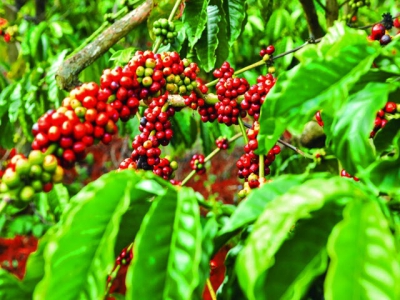Changes brewing in coffee farm code system

Vietnam, the second largest coffee-producing and -exporting country in the world, is developing a farm code information system in order to ensure the sustainability of its coffee sector by meeting the requirements of international roasters and improving cultivation efficiency.
The code system is a response to growing demands placed on exporters by importing countries. For example, to serve the requirement of goods traceability in China, exporters to that market must present farm codes, packing facility codes, and traceability stamps.
In 2018, Vietnam had 680,000ha of coffee cultivation with a yield of 2.5 tonnes per ha. The country exported 1.8 million tonnes of coffee for total value of US$3.5 billion last year. To drive towards Agriculture 4.0, the Global Coffee Platform (GCP) cooperated with Vietnamese partners, especially the Department of Crop Production under the Ministry of Agriculture and Rural Development on a pilot program to assess how Vietnamese coffee farmers understand and adopt good practices for sustainable production. The farm code program was implemented in Di Linh District in the Central Highlands province of Lam Dong with the participation of more than 8,500 coffee growing households.
Results of the pilot were shared at a May 23 held by the GCP and the Ministry of Agriculture and Rural Development. Le Van Duc, deputy director of the Department of Crop Production, said the system benefits many parties, helping farmers manage production input, and businesses trace origin and direct investment into production.
GCP in Vietnam Chief Representative Tran Quynh Chi said a database of coffee areas would be used as a digital tool to assist partners in managing coffee plantations and quality in Vietnam. The database will monitor origins, seed use, status and management of land, water sources, irrigation systems and inter-cropping.
According to Le Van Duc, this database must be applied on a large scale in order to be effective. It also needs to be applied uniformly to an entire region in order to provide an overview of the coffee sector. Currently, the Ministry of Agriculture and Rural Development has a number of programs for sustainable coffee development, including the Vietnam-Sustainable Agriculture Transformation (VnSAT) project. These programs are helping the ministry expand the required database and develop guidelines for provinces to build their own budgets and collect data.
Lam Dong Province will work with the Ministry of Agriculture and Rural Development and the GCP to develop a coffee code information database to the whole province. The GCP is working on other projects in the coffee sector to support farmers and help other provinces apply the database.
Related news
 Tan My pomelo exported
Tan My pomelo exported Green-skin pomelo of Tan My cooperative (Tan My commune, North Tan Uyen district) has successfully exported to Singapore
 Sóc Trăng’s largest fruit-growing district goes organic
Sóc Trăng’s largest fruit-growing district goes organic More farmers in Sóc Trăng Province's Kế Sách District have begun using organic fertiliser and bio-products under the encouragement of local authorities.
 Entrepreneur aims to bring quality Vietnamese coffee abroad
Entrepreneur aims to bring quality Vietnamese coffee abroad Ninh dreamed of taking Vietnamese coffee to the global market and supporting local coffee farmers. Việt Nam News correspondent Thu Ngân ask Ninh about his dream